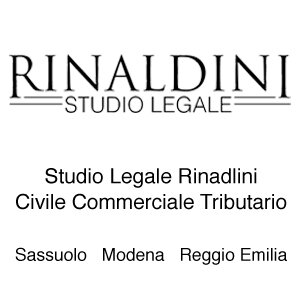Best Debt & Collection Lawyers in Italy
Share your needs with us, get contacted by law firms.
Free. Takes 2 min.
Or refine your search by selecting a city:
List of the best lawyers in Italy
About Debt & Collection Law in Italy
Debt and collection law in Italy is designed to regulate the processes by which debts are collected and managed. It focuses on protecting the rights of both creditors and debtors. The system is primarily governed by the Italian Civil Code and a series of regulations aimed at ensuring fair treatment throughout the recovery process. Enforcement of debt collection is typically overseen by judicial authorities, with multiple avenues available for creditors seeking repayment, ranging from amicable settlement to judicial enforcement.
Why You May Need a Lawyer
Engaging a lawyer may become necessary in a variety of situations in the field of debt and collection. Common scenarios include when an individual or business faces aggressive debt collection tactics, encounters disputes over the validity or amount of the debt, or requires assistance in negotiating repayment terms with creditors. Additionally, legal support is crucial when proceeding with or defending against court actions related to debt collection, ensuring that your rights are upheld and that proceedings follow legal protocols.
Local Laws Overview
Key aspects of local laws concerning debt and collection in Italy include:
- Liberatory Prescription Period: Generally, debts have a prescription period of 10 years, but this can vary depending on the nature of the debt.
- Amicable vs. Judicial Recovery: Initial attempts to recover debt often involve amicable solutions, such as negotiation and settlement, before pursuing judicial enforcement through the courts.
- Usury Laws: The Italian law strictly prohibits usury and imposes a cap on interest rates that creditors can charge.
- Debtor Protection: There are strict guidelines concerning the conduct of debt collectors, ensuring respect for the dignity and privacy of debtors.
- Alternative Dispute Resolution (ADR): ADR methods, including mediation, are encouraged to resolve disputes without resorting to litigation.
Frequently Asked Questions
What is the statute of limitations for debt collection in Italy?
The general statute of limitations for debt collection in Italy is 10 years, but this duration may vary based on the type of debt involved.
Can a creditor contact me at any time regarding debt collection?
No, there are specific regulations that protect debtors from harassment, including limitations on when and how creditors can contact you.
What should I do if I receive a debt collection notice?
Review the notice carefully, verify the validity of the debt, and if necessary, seek legal advice to understand your rights and responsibilities.
Is mediation available for resolving debt disputes in Italy?
Yes, mediation is an available option and often recommended as a less adversarial method to resolve disputes outside court proceedings.
How can I verify if a debt collection agency is legitimate?
You can request official documentation from the agency, and cross-verify their registration with local authorities or consumer protection organizations.
What are my options if I cannot pay the debt in full?
Consider negotiating a payment plan with your creditor or exploring debt restructuring options. Legal advice can provide specific strategies suitable for your situation.
Am I responsible for a debt if I did not sign a contract?
Debt liability usually requires a signed agreement; however, certain verbal contracts may be enforceable under specific circumstances-consult with a lawyer for clarity.
What happens if I ignore a debt collection notice?
Ignoring notices can lead to legal action being taken against you, including court judgments. It’s advisable to address the issue promptly.
Under what conditions can wages be garnished in Italy?
Garnishment can occur only through judicial authority, and there are limits on the percentage of wages that can be garnished.
Can I dispute a debt I believe is incorrect?
Yes, you should immediately notify the creditor or collection agency in writing and provide any evidence supporting your dispute.
Additional Resources
If you’re seeking further assistance, consider reaching out to the following:
- Local Chambers of Commerce: Often provide resources and legal advice for businesses and individuals.
- Consumer Protection Bureau (Garante per la Protezione dei Consumatori): Offers guidance and support for consumer rights.
- Professional Associations: Such as the Association of Lawyers for Debt Collection, can provide specialized legal contacts.
- Public Legal Assistance Services: Offered in various regions for individuals unable to afford private legal counsel.
Next Steps
If you require legal assistance in the area of debt and collection in Italy, consider taking the following steps:
- Document Everything: Gather all relevant documents and communications related to your debt.
- Seek Initial Consultation: Contact a lawyer specialized in debt and collection for an initial consultation to understand your position and options.
- Explore Legal Strategies: Work with your lawyer to assess potential settlement options, repayment plans, or defensive actions if facing legal proceedings.
- Engage in Negotiation or Mediation: With professional guidance, attempt amicable resolution if appropriate and beneficial.
- Prepare for Further Action: If necessary, prepare with your lawyer for court proceedings ensuring you comply with all procedural requirements.
Lawzana helps you find the best lawyers and law firms in Italy through a curated and pre-screened list of qualified legal professionals. Our platform offers rankings and detailed profiles of attorneys and law firms, allowing you to compare based on practice areas, including Debt & Collection, experience, and client feedback.
Each profile includes a description of the firm's areas of practice, client reviews, team members and partners, year of establishment, spoken languages, office locations, contact information, social media presence, and any published articles or resources. Most firms on our platform speak English and are experienced in both local and international legal matters.
Get a quote from top-rated law firms in Italy — quickly, securely, and without unnecessary hassle.
Disclaimer:
The information provided on this page is for general informational purposes only and does not constitute legal advice. While we strive to ensure the accuracy and relevance of the content, legal information may change over time, and interpretations of the law can vary. You should always consult with a qualified legal professional for advice specific to your situation.
We disclaim all liability for actions taken or not taken based on the content of this page. If you believe any information is incorrect or outdated, please contact us, and we will review and update it where appropriate.
Browse debt & collection law firms by city in Italy
Refine your search by selecting a city.
















